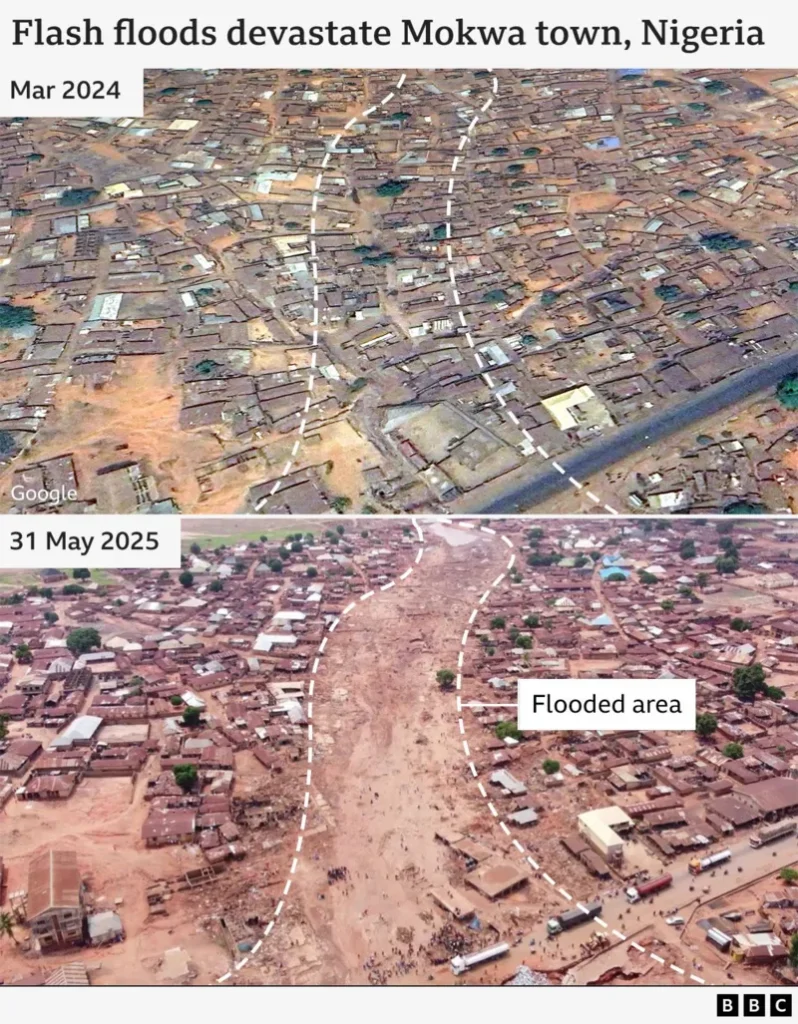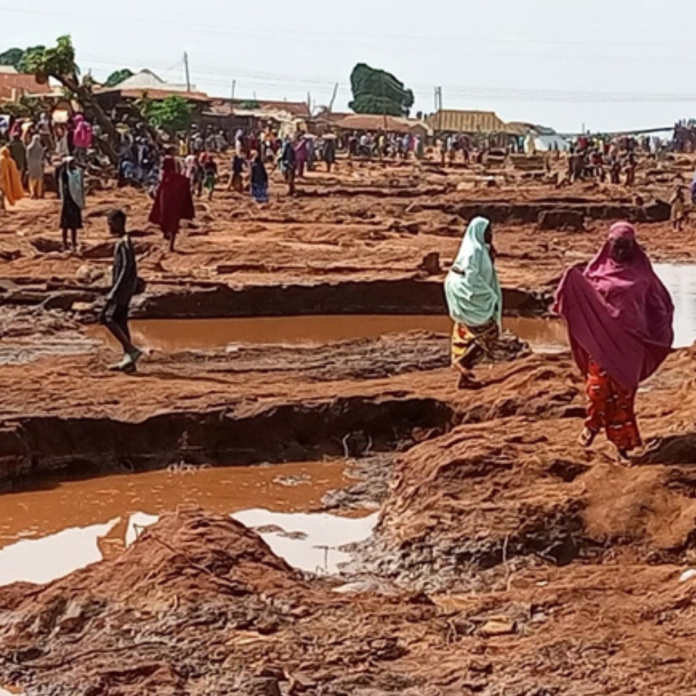The official death toll from Thursday’s devastating floods in the central Nigerian town of Mokwa has risen to over 200, with another 500 people still missing, according to local authorities.
Musa Kimboku, the deputy vice-chairman of Mokwa, told the BBC that search and rescue efforts have now been suspended, as officials no longer believe there is any chance of finding survivors. The floods, said to be the worst the region has seen in six decades, swept through the Tiffin Maza and Anguwan Hausawa districts following intense torrential rains.
In a grim development, local authorities say they will soon begin exhuming bodies buried underground to prevent the outbreak of disease. “We fear the health consequences if we leave corpses buried in saturated soil,” said Mokwa’s district head, Muhammadu Aliyu.
Survivors described scenes of utter devastation. Adamu Yusuf, a resident, lost his wife and newborn baby in the floods. “I watched helplessly as the water carried away my family. I only survived because I could swim,” he said.
Another local, Saliu Sulaiman, said the disaster had destroyed both his home and his livelihood. “I lost at least $1,500 — the proceeds from my farm produce sold the day before. I wanted to go back inside and retrieve it, but the force of the water was terrifying.”
Some residents have blamed the disaster on the collapse of a nearby dam, though authorities have not confirmed this claim. The floodwaters were so powerful that bodies were reportedly discovered in Rabba, a town over an hour’s drive away.
Authorities have instructed nearby communities to bury any bodies they find. “Some remains may never be recovered,” said District Head Aliyu. “They’ve been swept into the River Niger.”
The National Emergency Management Agency (NEMA) announced on Sunday that it had begun distributing relief packages to affected families. In a statement, the agency also noted that the floods had damaged roads and bridges, worsening the region’s economic and transportation woes.
The Nigerian Red Cross echoed concerns, calling the disaster a “significant loss of life and widespread distress.”
Seasonal flooding is a recurring problem in Nigeria during the rainy season, which lasts from April to October. In 2022, more than 600 people died and over 1.3 million were displaced by floods. A similar crisis occurred in 2024.
This latest tragedy in Mokwa adds to the growing toll of climate-linked disasters in the region, raising urgent questions about infrastructure resilience and emergency preparedness.
By BBC



